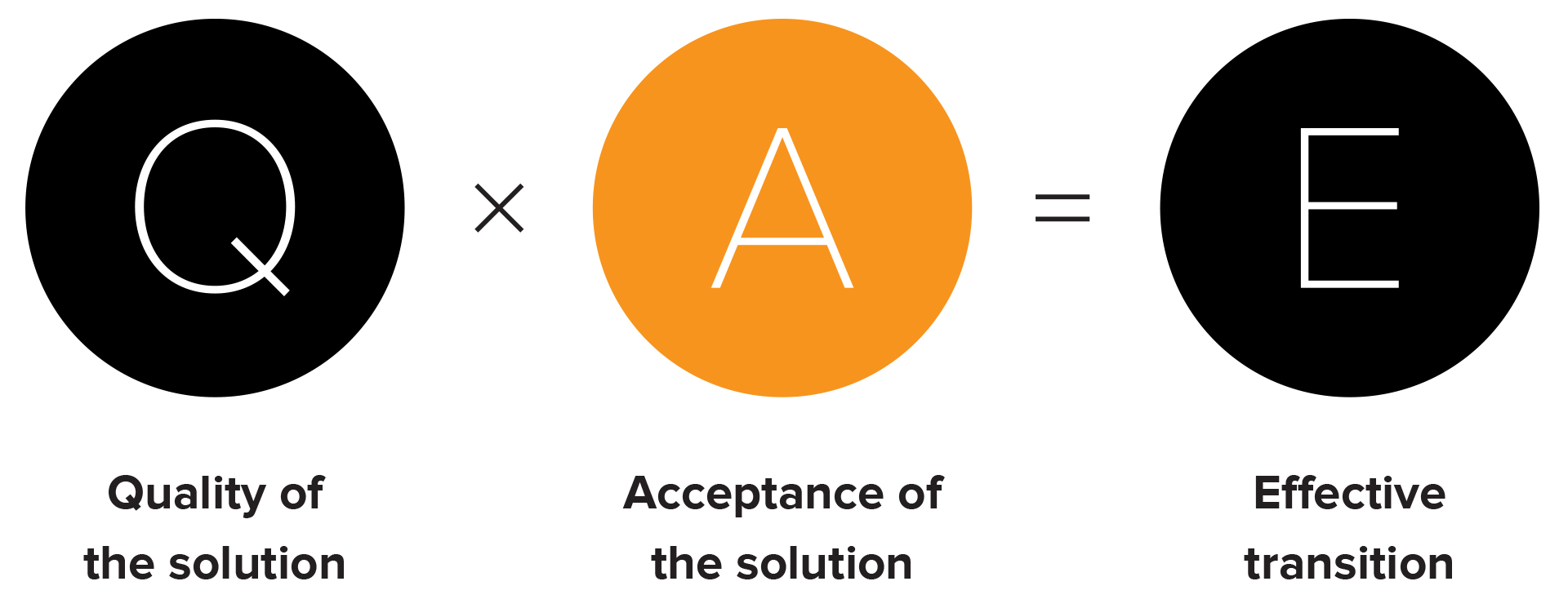When we speak of processes of change, we distinguish between "change" and "adaptation". "Change" represents a new situation being faced, while "adaptation" is concerned with individuals’ capacity and willingness to adjust to that change. Research into processes of change shows that the effect of a change depends on the degree of acceptance that it receives. A suggested change can look good on paper, but if people cannot be persuaded to adapt, the desired effect will not be achieved.
Effective processes of change first require that the change is perceived as important. In general, people like predictability, and change can be demanding, so individuals need to understand why a change is being implemented. Changes also needs to be perceived as important to garner acceptence; in other words, confidence that new measures being implemented are relevant and appropriate. In addition, the actual process through which the change will take place needs to be perceived as a good one.
These three points – importance, appropriateness, and good process – have significant results on change process outcomes. To achieve successful change and adaptation, it is absolutely necessary to gain acceptance from the people that the changes will affect.
Humans, by nature, are very versatile. It is not without reason that we have managed to settle in places ranging from Alaska in the north, to the Sahara in the south. We posses a fundamental capacity for change. Challenges occur when the change is not voluntary. Changes that we do not have ownership of, or that we regard as undesirable, can be perceived as very demanding. The greater the threat perceived by the individual, the more powerful their reactions will be. For this reason, leaders must be diligent in understanding the reactions of their staff.
With Bjørnson’s specialised skills in understanding the human factor, we can help propel the effectiveness of your processes of change.
Bjørnson offers in-person change-management consulting, digital training and development programs through
Bjørnson Online, and customised hybrid offerings combining in-person consulting and online learning.
Do you want to know more about how we can help with successful change and adaptation?
Get in touch.
